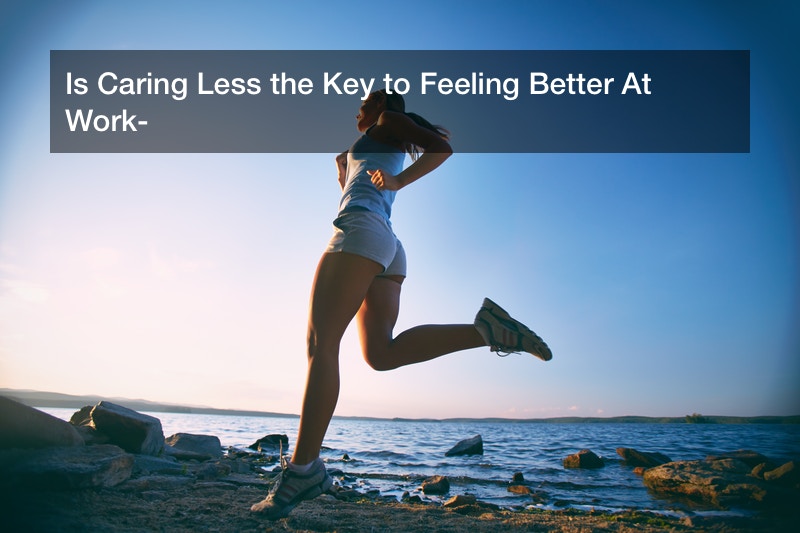
 Is caring less about your job the key to feeling better? One new book claims that it is.
Is caring less about your job the key to feeling better? One new book claims that it is.
Authors of the book “No Hard Feelings: The Secret Power of Embracing Emotions at Work” spent countless hours talking to gurus, reading self-help books, and performing healthy activities to lower perceived levels of stress. But few methods worked better than stepping back and stepping away from some of the stressors of the job.
Authors Liz Fosslien and Mollie West Duffy don’t want you to stop caring about your work, they simply want you to be less distracted by it throughout the day. They even identified the seven top stressors that can lead to feelings of burnout and stress, including:
- Unpredictable schedules
- Social isolation
- The information firehouse
- Sleep deprivation
- The information firehouse
- Obsessing about work on vacation
- And meeting unrealistic deadlines
These stressors cause us to obsess over work, whether we’re there or not. In fact, a recent study by Harvard psychologists revealed that most of us only spend half our time in the present.
This leads to further feelings of unhappiness, stress, guilt, anxiety, and depression. While this is hard to cope with outside of work, it also impacts our work life.
Nearly 51% of employees claim that their productivity suffers at work because of stress, but it’s very often the stress about work that creates this issue in the first place.
This creates a positive feedback loop of negative energy from which we simply can’t escape.
According to Fosslien, Duffy, and these Harvard psychologists, we need to stop letting work consume us. One method is breaking down your day into manageable tasks. Even setting aside a day for emails or writing can help ease the daily stresses of countless problems that come your way. Unless something is urgent, it can always be blocked off to complete at another time, like answering that social email or setting aside time in the morning to answer all emails at once.
Navigating stressors will look different for every person, but it’s also essential that you come up with ways to separate yourself from work when you’re not on the clock. Whether that takes the form of an after-work ritual or an adventure out of town, whatever creates a healthier work-life balance is worth pursuing.
After all, almost 70% of Millennials claim to be adventurous. Looking beyond your cubicle and embracing other aspects of life can really change your perspective.
